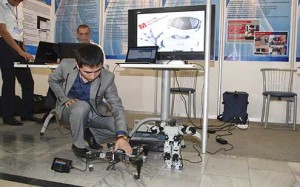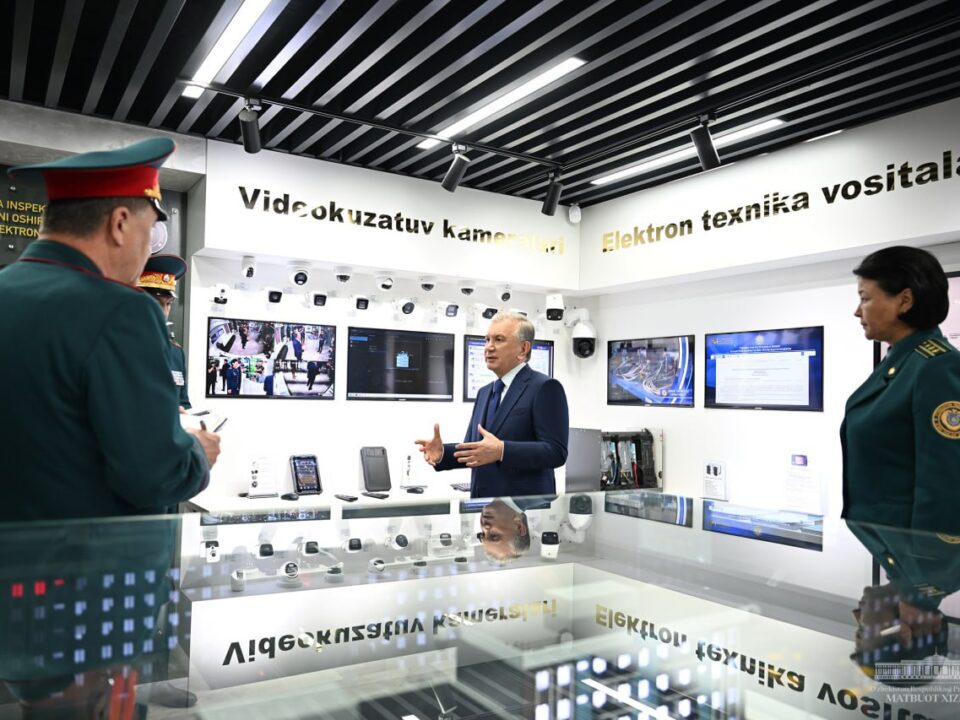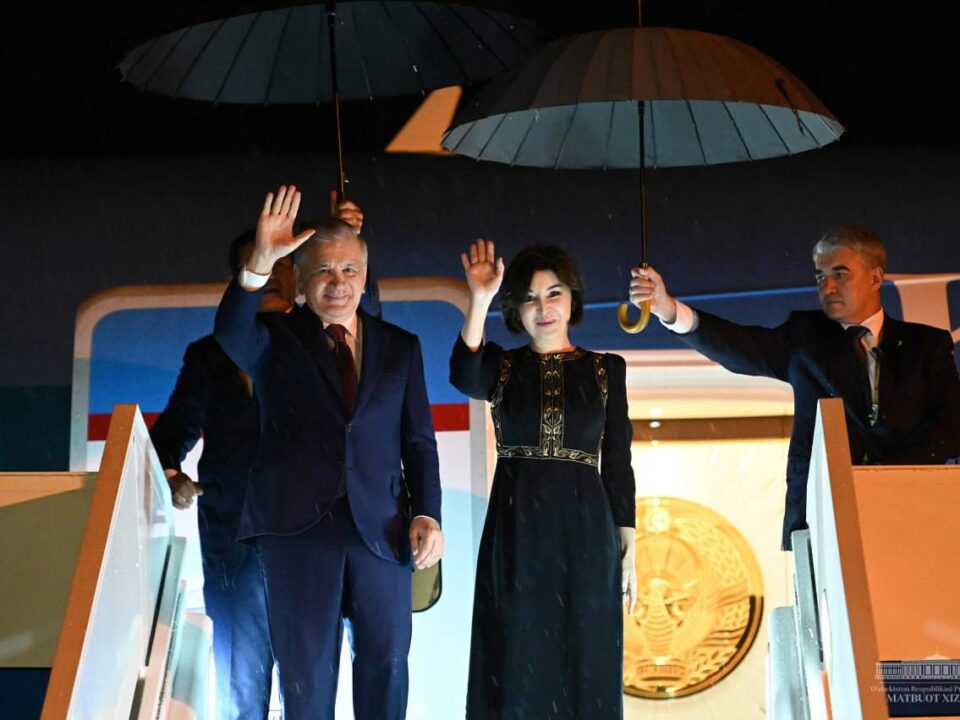 Competitiveness of the domestic science, issues concerning the introduction of new efficient technologies, training a younger generation of researchers, and other science related subjects are currently discussed extensively at the regional fairs of innovative ideas, technologies and projects, and also as part of preparation for the republican fair, which is traditionally held in the capital Tashkent.
Competitiveness of the domestic science, issues concerning the introduction of new efficient technologies, training a younger generation of researchers, and other science related subjects are currently discussed extensively at the regional fairs of innovative ideas, technologies and projects, and also as part of preparation for the republican fair, which is traditionally held in the capital Tashkent.
There is enough to show
In contrast to those in previous years, this year’s regional fairs are held in all provinces. The Ministry of Economy and the Coordinating Committee for Science and Technology Development are to hold similar forums in Karakalpakstan, Bukhoro, Navoi and Khorazm regions. Researchers present projects that might be useful in the regions. There, they enquire into the needs of the region firsthand. The expositions present various solutions for enhancing fertility and the development of livestock industry. There are all kinds of mini-technologies for small businesses and private entrepreneurship. This year’s fair is remarkable with a wide selection of renewable energy technologies. A nation-wide construction has entailed an extensive range of solutions for builders and manufacturers of construction materials.
The Seventh Republican Fair of Innovative Ideas, Technologies and Projects is to take place in the Uzexpocenter. This year’s arrangements involve design bureaus and research centers under big industrial associations along with research institutions of the Academy of Sciences, Ministry of Higher and Secondary Special Education, Ministry of Agriculture and Water Resources, Ministry of Public Education. The exhibition includes 494 products, 269 of which will be presented for the first time. The projects of high importance will be presented iteratively. The majority of exhibited products – 171 and 127 respectively – are targeted at industrialists and farmers. A significant part of the exposition represents medicine, pharmacology, information and communication technology, science and education.
The number of contracts and agreements being concluded at exhibitions has increased over the recent years. This year is expected to be no exception. For instance, 326 contracts valued at 11.8 billion soums were signed in 2012, while last year their number was 413, and the total value exceeded 17 billion soums. Under the last year’s agreements 20 series of new products to 648.2 billion soums were manufactured. 24 projects on extension of production facilities are underway. Fuel, chemical, pharmaceutical, food, textile and light industries are most active to cooperate with science.
Scientific publications are another criterion to judge on the competitiveness of science. 3,912 articles and theses were published last year under the government funded projects, including 1,014 articles in foreign journals and research collections of participants of international conferences.
Support from the state
Most of presented innovations were developed under science and technology grants.
Domestic scientists are fruitfully involved in the implementation of eight international research projects valued at 3.6 million US dollars, over 853,000 euros, 150,000 Swiss francs, as estimated by the Coordinating Committee for Science and Technology Development. For example, the funding of five projects under the memorandum ‘Uzbekistan-Korea 2012’, amounted to 4,520,000 UZS and 300 million KRW.
Meanwhile, state and enterprise customers remain the major source of funding for scientific research. Introduced in 2006, the system meets the models of developed countries. Most of the grants are currently implemented by institutions of the Academy of Sciences, Ministry of Higher and Secondary Special Education, Health, Agriculture and Water Resources.
In recent years Uzbekistan has embarked on a reduction of fundamental projects and increase of applied and innovation projects. This allows to focus on bringing scientific ideas to practice.
The winners of innovative projects to be funded in 2014-2015 have been recently announced. They are 350 relevant research projects, which will be funded jointly by government and the companies claiming for the innovations. Innovation Grants is a unique and effective tool to empower the researches to introduce their products.
Currently, domestic researchers carry out 392 fundamental and 892 applied projects.
As of 2008, Uzbekistan has introduced a new kind of grants for researchers under 35 to attract young people to science and support them. Unlike last years, the list of projects to be implemented in 2014-2015 includes 109 names. As reported by research administration, the number of youth grants will grow, and the competition will be annual.
The stake on young scientists is not accidental. With their outlook, ambitions, views, computer and communication skills they contribute to the development of up-to-date technologies which are significantly ahead of time and most relevant for the country’s development.
To create the appropriate conditions the state in cooperation with foreign partners is implementing projects on the development of advanced research centers. One of them – the High Technology Center in Tashkent – broadly applies the experience of the University of Cambridge. It provides conditions both for staff training and research in physics, chemistry, biology, geophysics, biophysics, and biochemistry. It is noteworthy that the center was implementing different kinds of educational programs and arranged meetings for the local youth and world’s forefront researchers yet in the process of building its logistical capacity. Establishment of International Institute for Solar Energy, which deals with the introduction of solar energy in the economy, is another major project. 15 high-tech research laboratories under 14 largest universities are expected to be highly effective. The project covers almost all modern areas of science.
The future belongs to the young
Much is being done to ensure that research papers were grounded on the data obtained from specific high-tech studies. Experts anticipate the increase in the number of promising young innovators to present their inventions for the Innovation Fair while getting prepared to defend their doctoral dissertation.
The year 2013 marked the country’s transition to a single-stage system of training of research and pedagogical staff. Today it is represented by the Institute of Senior Fellows and the doctor’s degree system. Those who tried to compare a PhD thesis with a doctoral dissertation were deeply mistaken. Having passed certification, 1,135 people out of 1,787 intern researcher applicants have become senior fellows and continued preparations for doctoral dissertations.
The requirements for a PhD thesis have become much higher. Many of the intern researcher applicants have won youth research grants this year to be funded in 2014-2015. It is expected that such a support will motivate the future doctors of science to keep researching and contribute to the solution of science-intensive tasks. Subjects of dissertations and research grants match in most cases, which suggests a high level of degree works and their conformity with the real needs of the society.
The single-stage research staff training system implies that all topics of future doctoral dissertations must undergo an expert review at the Coordinating Committee for Science and Technology Development to meet the requirements of state research and engineering programs, which inherently summarize the state’s needs in research. The bank of the reviewed topics includes more than 2.5 thousand items, and is available at the committee’s official website.
The state uses a system of training highly qualified staff to guide young people in its needs. For instance, in 2014, the admission quota to the Institute of Senior Fellows increased from last year’s 522 to 650 people, and twice in engineering. Country needs the specialists to implement the strategy of modernization of production and the widespread introduction of up-to-date technologies.
“Uzbekistan today” newspaper

























